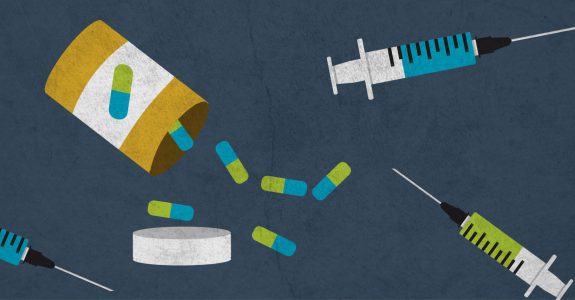Claire Fiddian-Green is the President & CEO of the Richard M. Fairbanks Foundation.
While Indiana has many proud accomplishments, the health of our state’s population is not one. According to United Health Foundation’s America’s Health Rankings, Indiana is in the bottom-third of states for overall health – at 39th. And a recent Gallup study on well-being ranks our state at 47th.
What are the primary drivers of our poor health rankings? First and foremost: tobacco use, as evidenced by our state’s 20.6% smoking rate. Second is addiction to prescription pain killers and heroin use – collectively referred to as “opioid use disorder.”
These challenges might seem daunting, but we know there are proven ways to address them. Employers can play an integral role in these efforts.
At the April 2017 Frameworx session hosted by BioCrossroads, I joined my colleagues Dr. Paul Halverson, Founding Dean of the Indiana University Richard M. Fairbanks School of Public Health at IUPUI, and Bryan Mills, President & CEO of Community Health Network and Chair of the Indiana Hospital Association, to share concrete steps employers and other stakeholders can take to tackle tobacco addiction and the opioid epidemic. Inside Indiana Business described the discussion as a “wake up call” for businesses.
At that session, we highlighted two solutions to reduce our state’s rampant tobacco addiction. Based upon rigorous research studies, we know the most effective way to curb tobacco use is to raise the price of cigarettes. This encourages smokers to quit and discourages young people from ever trying their first cigarette. Another important part of the solution is to ensure smokers can access proven treatments that will help them stop smoking. Employers can help connect smokers to such treatment by including comprehensive tobacco cessation services in their employee benefits plans and communicating often to their employees about these benefits.
Addressing the opioid epidemic is more challenging. The crisis is still unfolding, and there is limited evidence about proven approaches. However, we do know three things that will help curb the epidemic.
First, we need to do a much better job of preventing people from abusing opioids or trying heroin. Prevention needs to start as early as grade school and continue into the workplace. Second, we need to increase resources to help people struggling with addiction get access to treatment. And finally, we need to act quickly to mitigate the negative impact of the opioid epidemic by increasing access to “harm reduction” tools like naloxone, the life-saving drug that revives a person who has overdosed.
Employers can play an important role in advancing these efforts. They can educate employees about the dangers of opioid use disorder and organize “Take Back” events to collect unused prescription pills from their employees, thereby reducing the supply of pills in circulation. Employers also can make an impact by providing comprehensive addiction treatment services in their employee benefits plans, screening for opioid use to identify employees who need help, and connecting these employees with treatment.
Tackling tobacco and opioid addiction will take a comprehensive, cross-sector approach. By working together and with urgency to implement evidence-based policies and programs, Indiana can help its people live much healthier lives. In turn, our communities will flourish and the economic vitality of our state will continue to strengthen.


